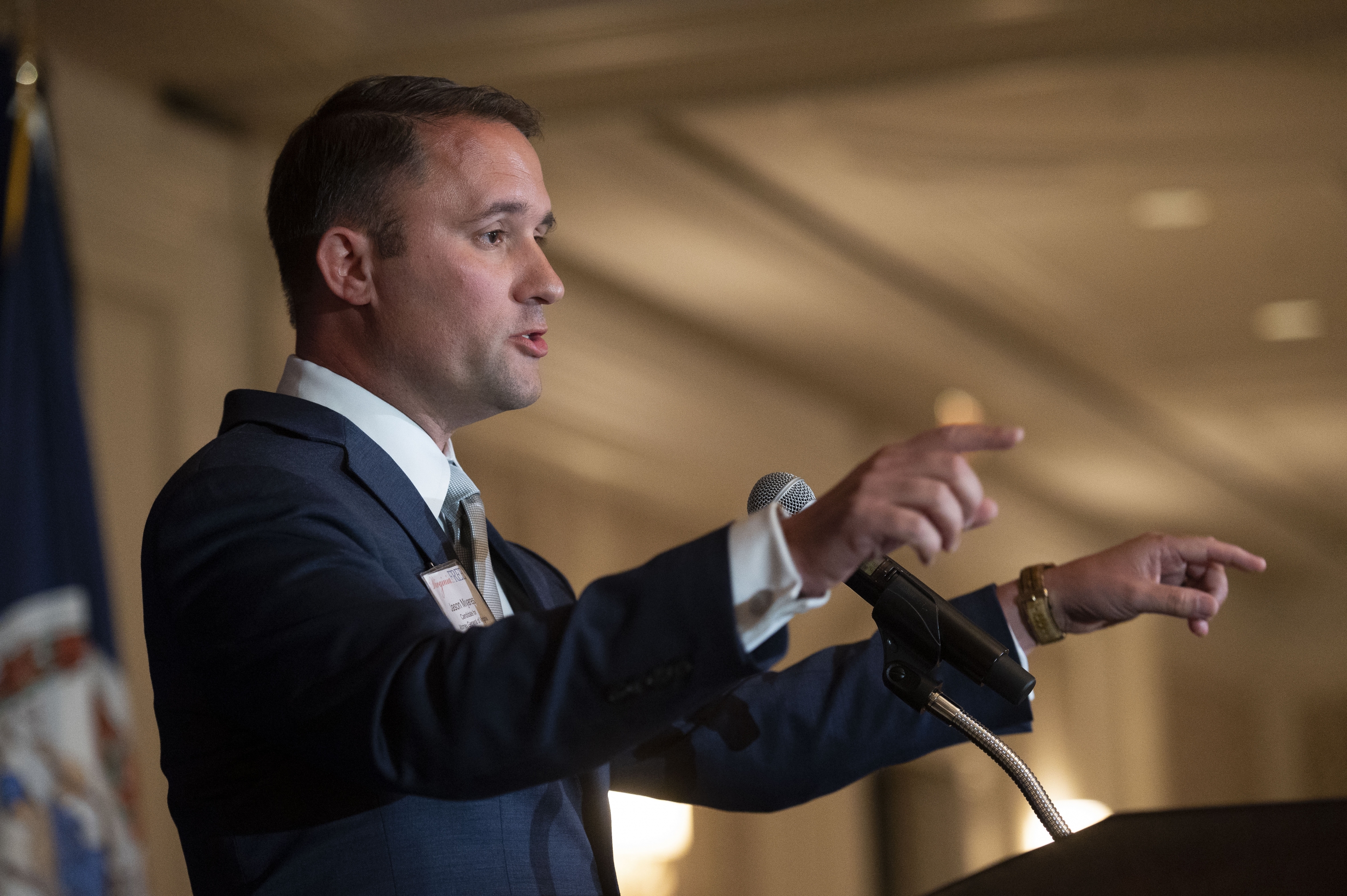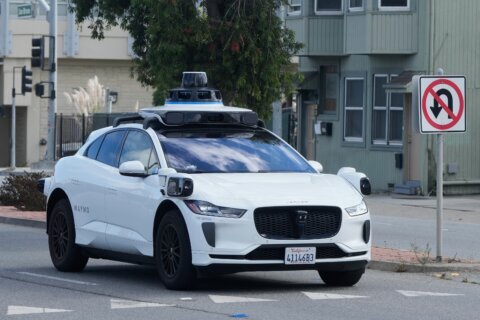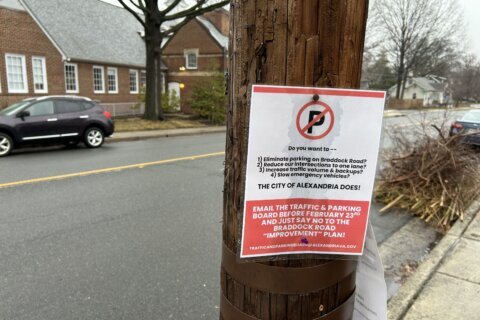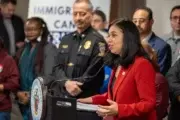
EDITOR’S NOTE:Virginians have a few days left to vote for the commonwealth’s statewide offices — governor, lieutenant governor and attorney general. Seven candidates for those seats — gubernatorial candidates Terry McAuliffe, Glenn Youngkin and Princess Blanding; lieutenant governor candidates Haya Ayala and Winsome Sears, and attorney general candidates Mark Herring and Jason Miyares — sat for conversations with WTOP’s Nick Iannelli.
As is generally the case, there has been no shortage of attacks in the Virginia campaign, and no shortage of places to find out about them. Some of that is fair game and important to know; some of it, not so much. Some of it isn’t true. What we’ve done here is keep phrases such as “my opponent wants …” and “my opponent says …” to an absolute minimum. You’re getting the candidates’ views on themselves, what they would do in office and why they want to do it.
Del. Jason Miyares told WTOP he’s inspired by “the American miracle” that saw his mother, who grew up in Cuba, eventually cast a vote for her son in the United States.
Read Nick Iannelli’s interview with Miyares’ opponent, Democratic Attorney General Mark Herring.
Miyares’ mother, Miriam Miyares, fled Cuba in 1965, “and I was raised in a household of someone that had such deep appreciation for the greatness of what this country is,” Miyares told WTOP’s Nick Iannelli. “My mother fled a country with no consent of the governed in October of 1965 … and almost 50 years to the day that she left, she was able to walk into a voting booth and get a ballot with her son’s name on it in the fall of 2015.”
“And I tell my daughters all the time — gratitude is one of the most underrated of all human traits. And boy, was I raised to have such gratitude to live in this country.”
Miyares, a Republican delegate from the Virginia Beach area, said he’s running for attorney general to put into place the lessons he learned as a prosecutor.
“I saw the fact that the murder rate had skyrocketed in Virginia and I did not like being in the General Assembly seeing a lot of policies that I thought were making Virginians less safe and less secure. And, you know, as a former prosecutor, it bothered me greatly that I thought victims were being ignored during this process.”
The homicide rate in Virginia has risen 51% since 2014 — from 4.05 per 100,000 to 6.15, according to statistics from the Virginia State Police.
This video is no longer available.
Miyares said his approach to reducing gun violence in the commonwealth would focus less on gun control and more on “measures that actually lower gun violence. … The proven track record that lowers gun violence is, you go after those that are using guns in the commission of a felony, and you get them off our streets. Between 1993 and 2016, gun violence dropped dramatically in this country, but gun ownership actually went up. … And it was because we had truth in sentencing.”
He touted his Severe Threat Order Protection Bill. “If you are somebody who’s displaying a threat to yourself and others, it would enable you to both get help, and, for a period of time that the judge determines, not allow you to be able to buy a firearm.”
It didn’t get a hearing, he said.
Miyares cited the problems surrounding Virginia’s Parole Board and said Herring has “done nothing to stop it.”
Told that many observers say the attorney general doesn’t have that power (indeed, Politifact has rated Miyares’ claim false), Miyares responded, “Well, you have five former attorneys general that have said absolutely you do.”
He cited a lawsuit by former Attorney General Mary Sue Terry against the Virginia Retirement System as evidence that attorneys general can object to the decisions of state agencies.
The Trump factor
Miyares was quick and frank in answering questions regarding former President Donald Trump’s lies that the election was stolen from him.
Would he have joined the Texas-led lawsuit by 17 state attorneys general to invalidate the election in four states? “No.” Does he think the election was stolen from Trump? “Nope.” Does he think there was widespread election fraud in Virginia during the election? “No, I don’t.”
Same-sex marriage
Miyares voted in the House against a ballot proposal which would have let Virginians vote to remove the state constitution’s prohibition on same-sex marriage. He said he voted that way because the language was “very, very poorly worded” and added, “I actually voted to end the statutory ban on gay marriage.”
He added, “Part of my faith is imago dei — everybody is made in the image of God, I think every Virginian every American should be treated absolutely with dignity and respect. And that’s how I live my life.”
- More coverage of the Virginia Governor’s Race
- Virginia voter guide: What you need to know for the 2021 election
‘The administrative state’
Miyares said state attorneys general are the only ones who can challenge federal “overregulation” and “the growth of the administrative state” that doesn’t go through Congress, but didn’t list any specific policies he would sue the Biden administration over.
“One of the biggest problems we have sometimes in government is good intentions,” Miyares said. “People, either elected or working in governments, sometimes think that good intentions can guarantee good results. It doesn’t always happen.”
COVID-19 vaccine mandates are one of the hottest issues in the conflict between the federal government and some states, and Miyares said he was against them, while affirming the importance of getting vaccinated.
“I’m very pro-vaccine,” said Miyares, adding, “and I’ve said before, you cannot mask your way out of this pandemic; we’re going to have to really get vaccinated. And I agree with the president when he says this is a pandemic of the unvaccinated right now. … All your listeners that are not vaccinated, I would encourage them to get vaccinated, but ultimately gonna have to make that conclusion on their own.”
He added that private employers have the right to tell their workers to get vaccinated as a condition of employment — “they can put a variety of conditions on employment, including what your dress code is” — but he disagrees with mandates on businesses to require workers to be vaccinated. “I think everybody has to reach this conclusion on their own.”
Asked whether he would take legal action against the Biden administration over the issue, he said, “My hope is that quite candidly, by the time we get into January, this will be more behind us … and we can start looking at other issues.”









